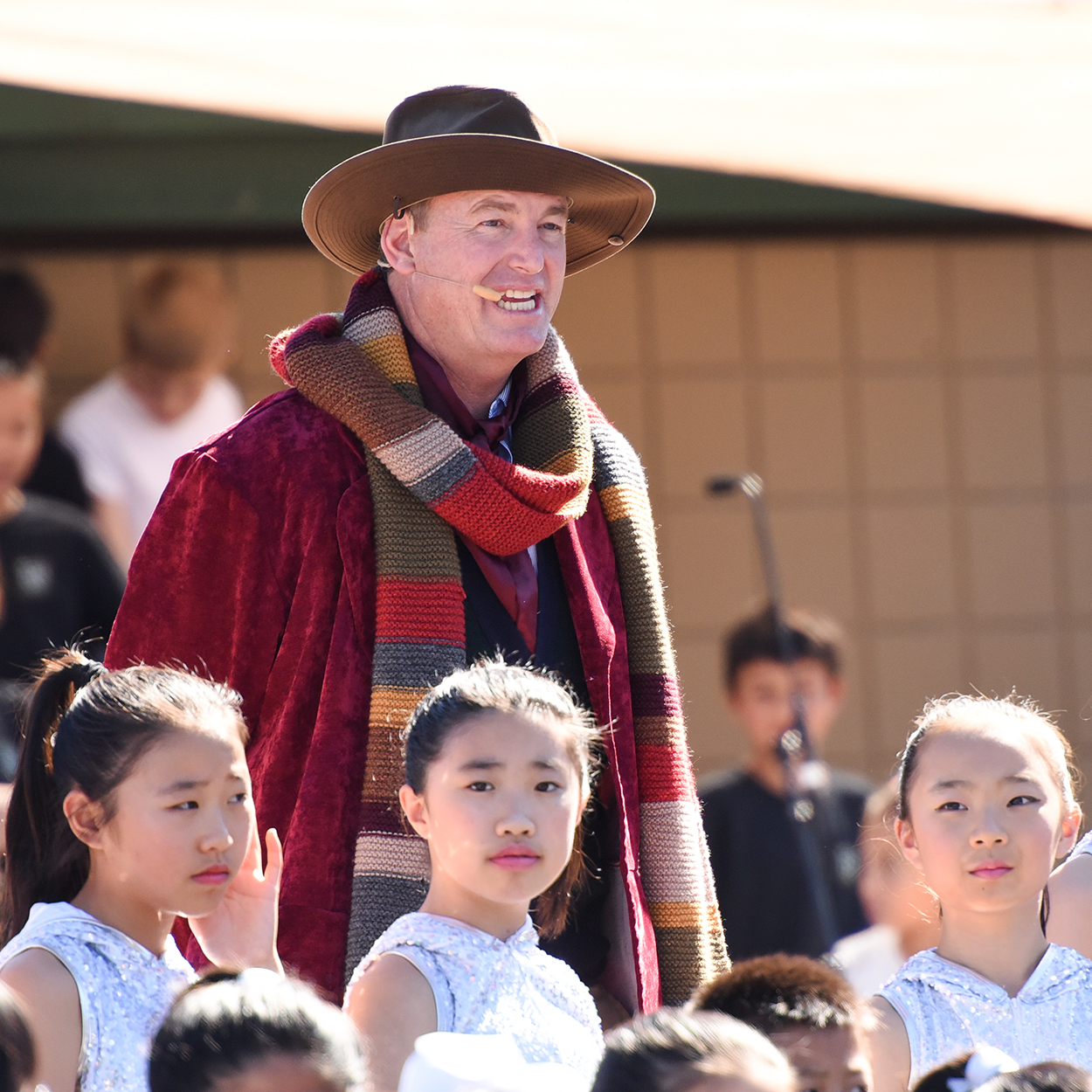This article originally appeared in the winter 2018 issue of Harker Magazine.
In this 125th anniversary year, I hope you are enjoying learning about the people, events and traditions that are celebrated on the banners and poster boards at our four campuses. I am struck by how often teachers are featured in these memories. While varied in the ways they have impacted the school over the past 125 years, the teachers at Harker always have been at the forefront of our efforts to bring out the best in every student. Recently, the words from one of my most influential elementary school teachers, Mrs. Robinson, were pulled to the front of my mind as I observed some of the exciting things going on at Harker in 2018.
Mrs. Robinson’s words are etched in my memory, forever providing guidance. She was our grade 6 teacher at Montecito Union School in Santa Barbara, and, like all great teachers, she sought to instill in us wisdom that would remain with us long after we had moved on from her classroom. Her favorite message always started with a question: “What is the most important time in your life?” She’d ask us this when we were at our best, eagerly paying attention, following directions and primed for reinforcement, and she’d ask us when we were having a tough day, or she was. The pause between her words and ours was essentially nonexistent, for from the first day of class we learned the response she sought – the single monosyllabic key to all of our focus. “What is the most important time in your life?” Mrs. Robinson would ask. Our chorus was firm and instantaneous: “Now.”
This message was on my mind during some seminal Harker experiences, the first of which was the seventh grade national parks trip. In Utah and Arizona, among the wind and water-carved sandstone arches and vermillion cliffs, the brief span of our lives relative to the workings of our Earth comes into focus. The landscape of the Grand Canyon took millions of years to emerge from the sandstone deposits of our continent’s primordial lake. In this landscape, it would be easy to feel that the present is of little significance. Yet, even among the grandeur of the formations, one can see the effects of each blow of wind, each cycle of freeze and thaw in the fissures of the rocks, and each footstep on the sandy base of the trails. Even to the landscape that defines our nation, now is still the most important time, and for us as visitors, the juxtaposition of the work of millennia and our brief visit invited all of us to make the most of each day on the trip and throughout our lives.
In addition to being exposed to the beauty of the landscape, the seventh graders also were fortunate to spend some time among the Navajo. Their tradition of orienting all exterior doorways to the East reflects an appreciation for the sun and the arrival of each new day – to focus on the now, even while honoring the past and preparing for the future.
The upper school’s first fall production in the Patil Theater in the Rothschild Performing Arts Center similarly spoke to the importance of the present. The play, a beautiful rendition of “Our Town” by Thornton Wilder, challenged our actors to explore the importance of the ordinary, everyday moments in our lives. One of the play’s central themes is that it is easy for us to emphasize, if not fixate on, our lives past and future, but that meaning comes from the present, and that now is what matters most.
The present for Harker is an exciting one. In addition to the ongoing processes of the school year, we are in the midst of an accreditation cycle and also are celebrating our 125th year of educational leadership. As we look to the future and plan for the next 125, we are taking the opportunity to reflect on our measures of success in three crucial areas. The first two relate to the opening line of Harker’s mission statement, which reads: “Our mission is to educate students for success at college and beyond.” What does it mean for our students to succeed in college? What does it mean for them to succeed beyond? The third question we are exploring is, what does it mean for us to succeed as an institution?
All three of these questions in essence look to the future, for even as we reflect on how we define institutional success, we must recognize that our efforts are aimed at positively impacting the entire lifespan of each of our students. It is an interesting dichotomy that while our efforts as an educational institution are focused in the moment, the process of education is, by definition, one of optimizing the future.
The central challenge of assessing our efficacy is that the manner in which we succeed in preparing students for life does not materialize immediately. Education requires committing to delayed gratification. To be sure, there are daily joys and constant evidence of student growth and achievement, often to a profound degree. However, the long-term impacts – arguably the most important outcomes – can only be viewed and assessed with the gift of time. Some of the seeds we plant germinate quickly. Others take time to sprout, and, even then, like the valley oaks and redwoods around us, might take decades to reach their full size, and longer still to mature to their full potential.
Yet, as Mrs. Robinson continuously reinforced, our commitment to the present is the best path for a successful tomorrow, however we define that success. Thank you for being part of the Harker community as we continue to strive to live our lives fully and guide our students toward their futures … now.
